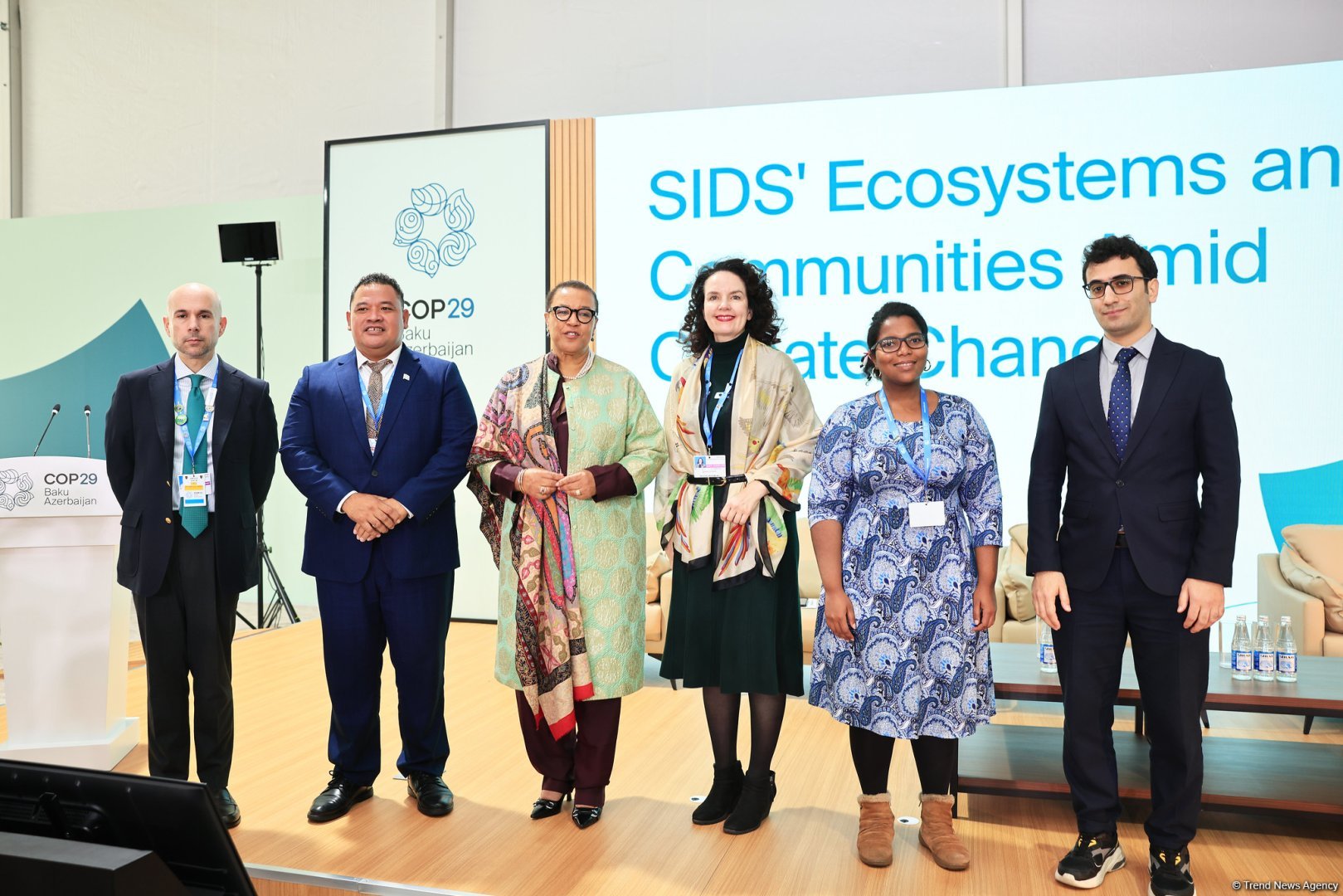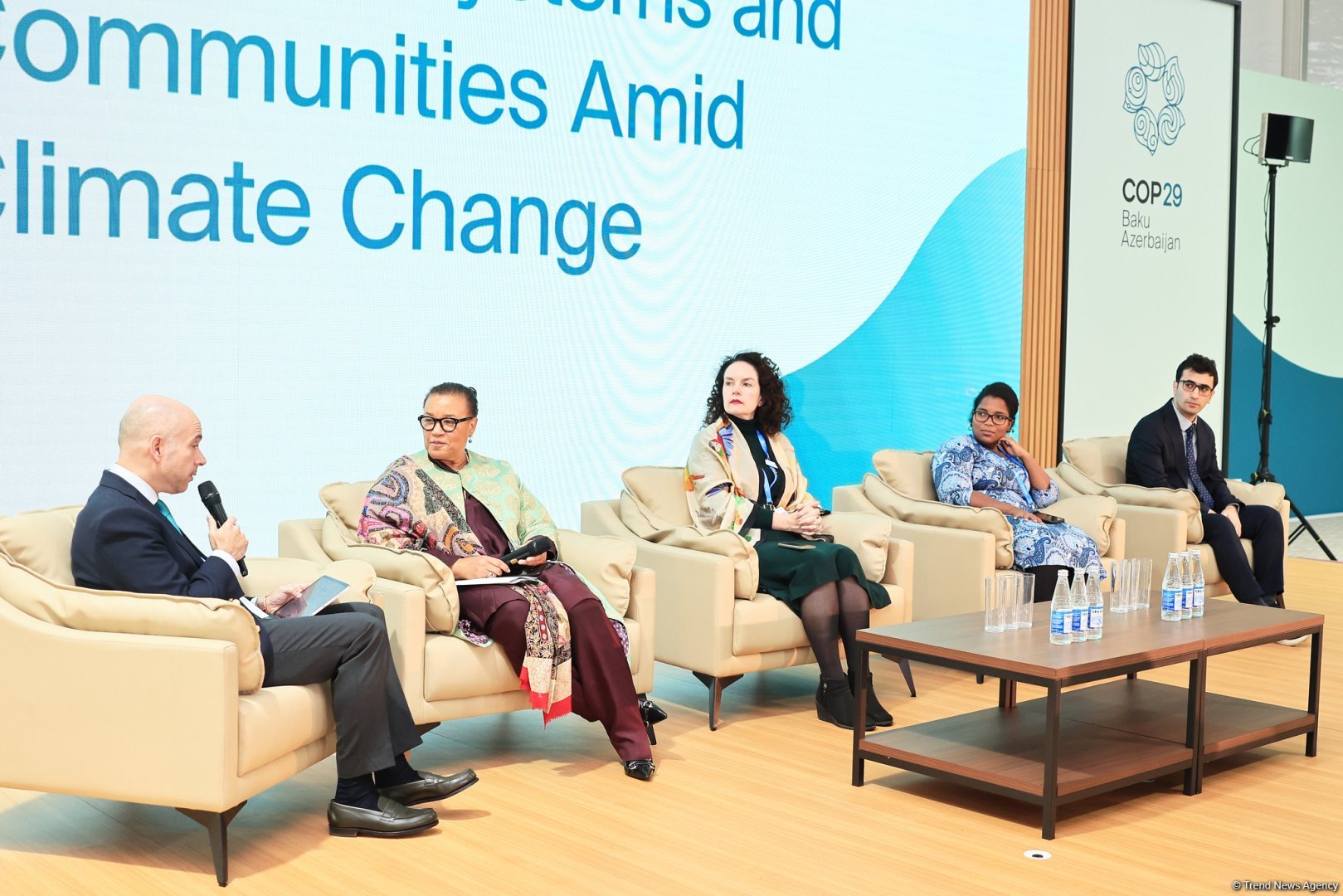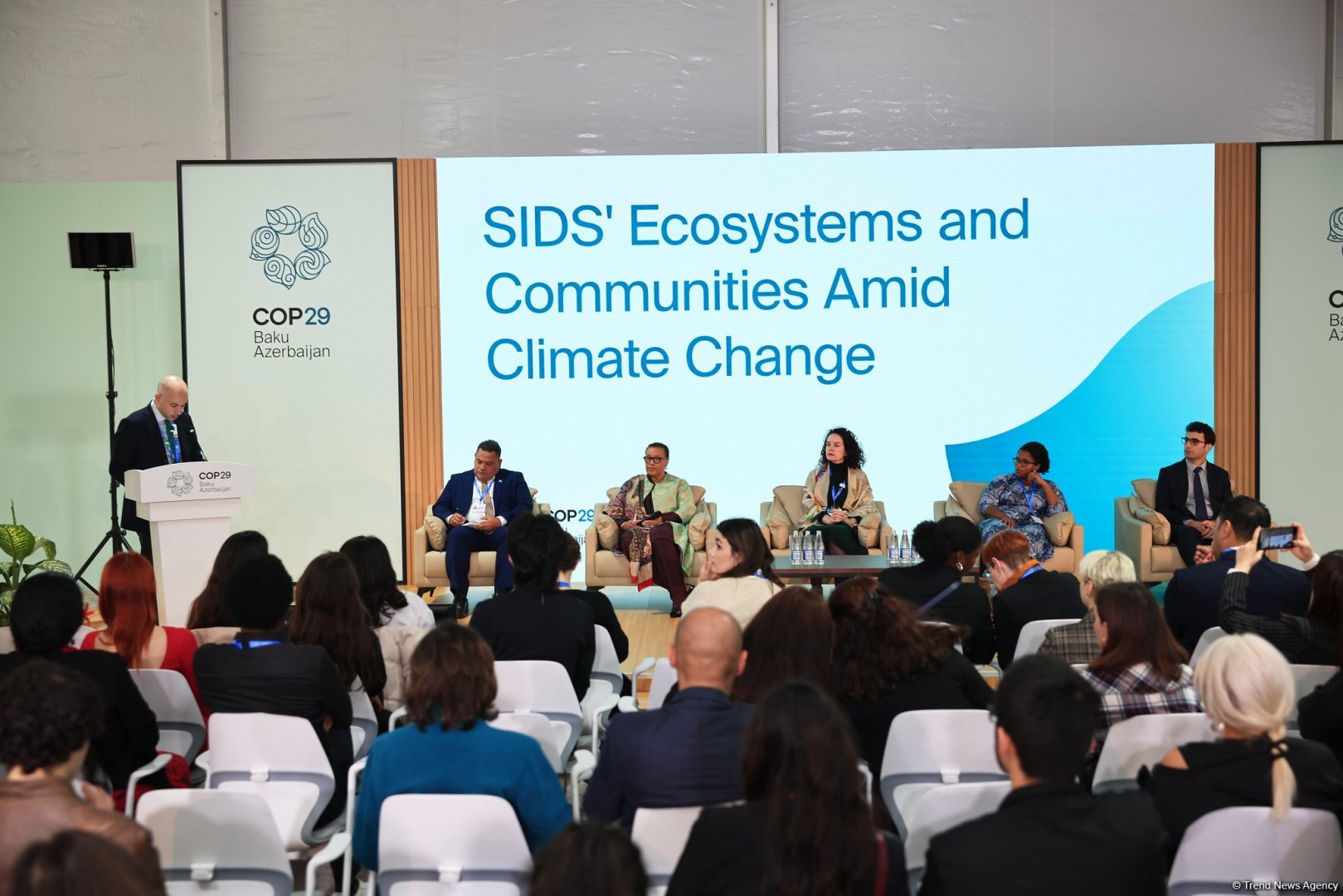Baku, Azerbaijan, November 21. Alongside high-level talks in the Blue Zone, COP29’s Green Zone programming continued its series of events. On November 21, the COP29 Azerbaijan Operating Company hosted another session in the Green Zone, Trend reports.
A panel session titled “SIDS’ Ecosystems and Communities Amid Climate Change” discussed the challenges faced by developing SIDS in combating the escalating impacts of climate change. Moderated by Vanuatu’s Special Envoy to COP29, Ali Serim, the discussion included The Rt Hon Patricia Scotland QC, Secretary-General of the Commonwealth; Dr Maina Talia, Minister of Home Affairs, Climate Change, and Environment of the Government of Tuvalu; Dr Rebecca Nadin, Director of Global Risk and Resilience Programme at ODI Global; Angelique Pouponneau, Advisor at the Permanent Mission of Palau to the United Nations; and Murad Jamalov, Head of Thematic Processing at the Geospatial Information Systems Centre of the Space Agency of the Republic of Azerbaijan (Azercosmos).
The panel highlighted how issues ranging from sea-level rise and extreme weather events to the loss of vital ecosystems make small island developing states (SIDS) particularly vulnerable. The session discussed the socio-economic consequences of climate change for these nations, including displacement, livelihood losses, and the weakening of economies reliant on marine and coastal resources. The degradation of natural ecosystems and the resulting threats to biodiversity and the livelihoods of indigenous communities were also key discussion points.
Panellists stressed the importance of continuous monitoring and responsive action to combat climate change and its impacts. They emphasized the need for climate-resilient infrastructure, equipping younger generations with the necessary skills and knowledge, enhancing local adaptation capacities, and developing strategies that integrate ecosystem protection with community-led solutions.












